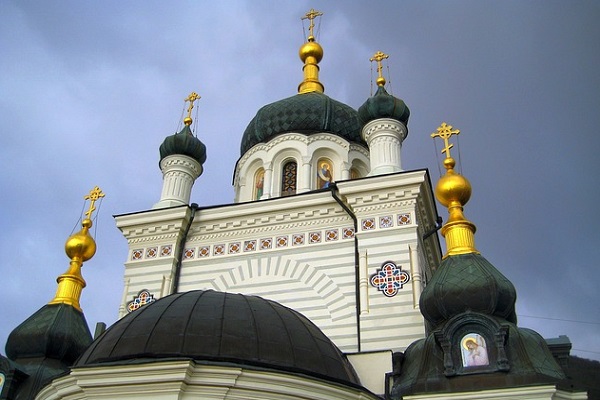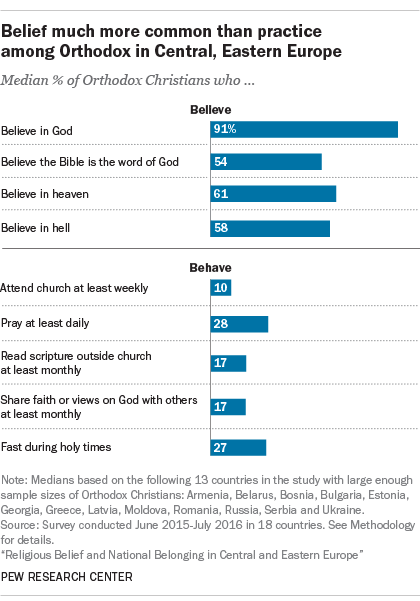
Most European Orthodox Christians Believe, But They Don’t Go To Church
- By Derek Welch --
- 01 Jun 2017 --

The percentage of Orthodox Christians who “practice what they preach” is actually small compared to the total number of Orthodox Christians in Eastern and Central Europe.
A new survey by the Pew Research Center of 18 Eastern and Central European countries, including Russia, has revealed a resurgence of Orthodox Christianity since the time the Soviet Union fell. This rise in religious identity is seen to be followed by a high quotient of religious belief, like believing in God.
Orthodox Christians in Europe More Likely to Believe Than Practice Their Religion[/tweetthis]
Orthodox Christians make up about 57 percent of the total population of Eastern and Central Europe. They are a substantial majority in almost 10 of 18 countries that were surveyed. The prominent countries in this list include Russia, Greece, and Serbia. Most of the Orthodox Christians in these countries assert religion forms a major component of their identity. They are also found to embrace a number of core beliefs associated with Orthodoxy. About 91 percent of the region's Orthodox Christians profess a belief in God. A substantial chunk says heaven and hell exists. They also claim the Bible is God's word.
However, in a strange twist, it is also observed by the researchers that people of the region do not engage much in religious practice, like regularly attending church. It seems that the orthodoxy of the religion does not mean they will practice the religion as well. This practice is known as “orthopraxy.” To give an example, only about one-third of the region's Orthodox Christians are found to pray every day. Only a minority fast during the holy month of Lent. A smaller percentage admits they visit the church only once during any given week (about 10 percent). Only a small portion of the believer population listen to scripture readings outside church boundaries (17 percent). Only 17 percent share their faith.
The region's Catholics, in comparison, while likely to report identical religious beliefs, like a belief in God, could be actually much more probable than Orthodox to be involved in a number of religious practices like weekly church attendance, taking Communion, fasting, and sharing their belief or faith. About 28 percent of Catholics attend church every week, as compared to only 10 percent of Orthodox Christians. Catholics (54 percent) are much more probable than Orthodox Christians (27 percent) to fast in holy days or events. Differences like these are much more in countries having substantial shares of both Catholics and Orthodox Christians. To give an example, 58 percent of Catholics in Bosnia pray every day, compared to 28 percent of the Orthodox Christians.



















